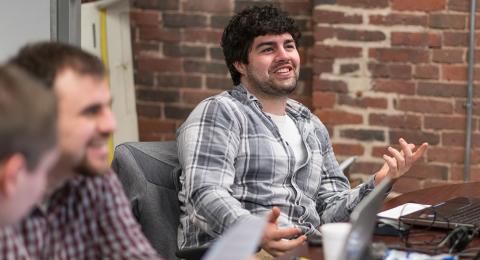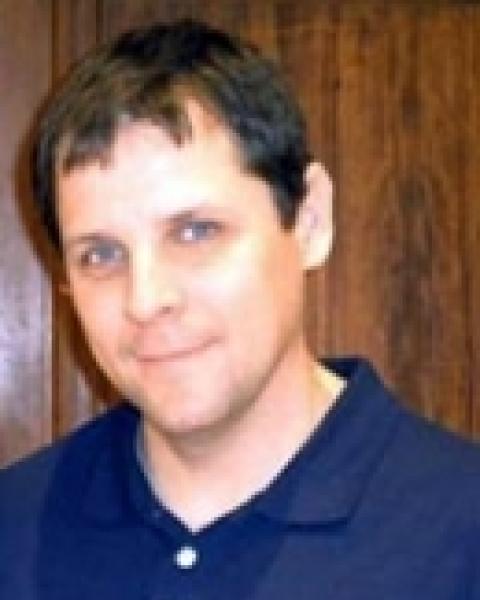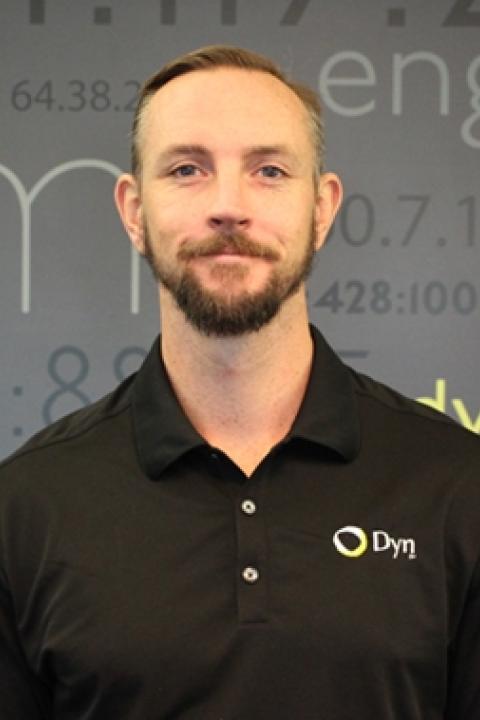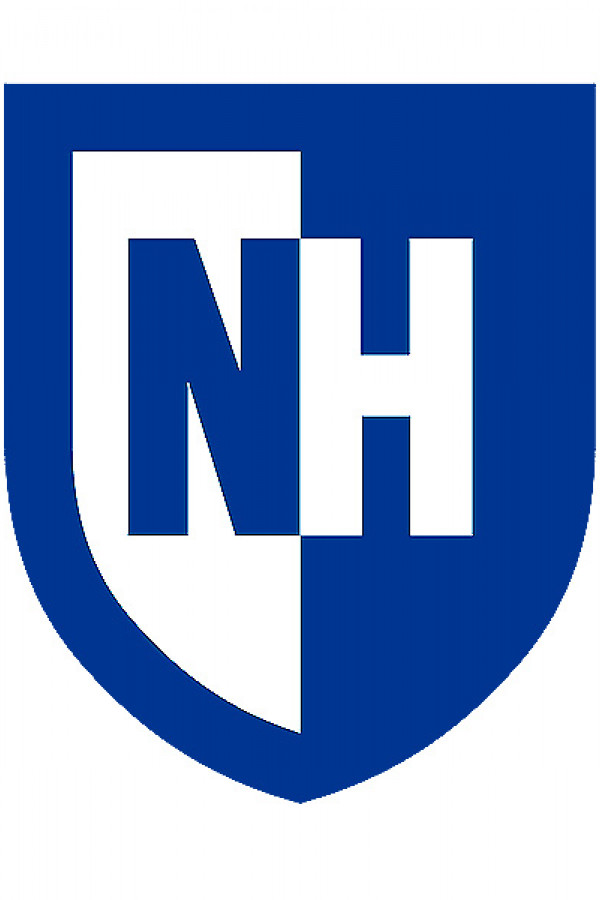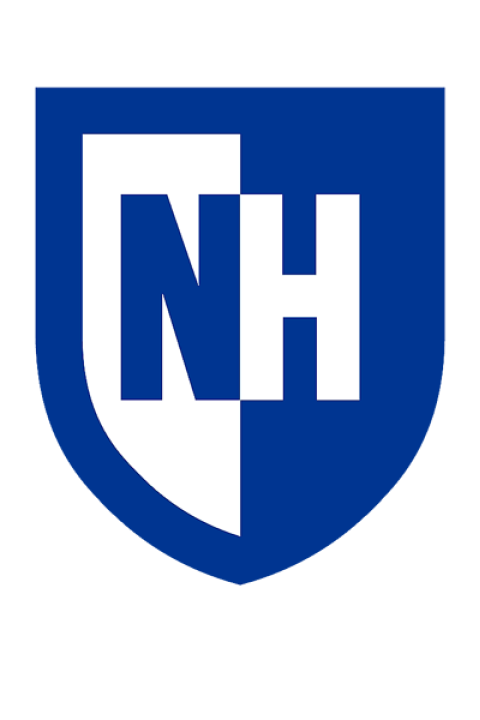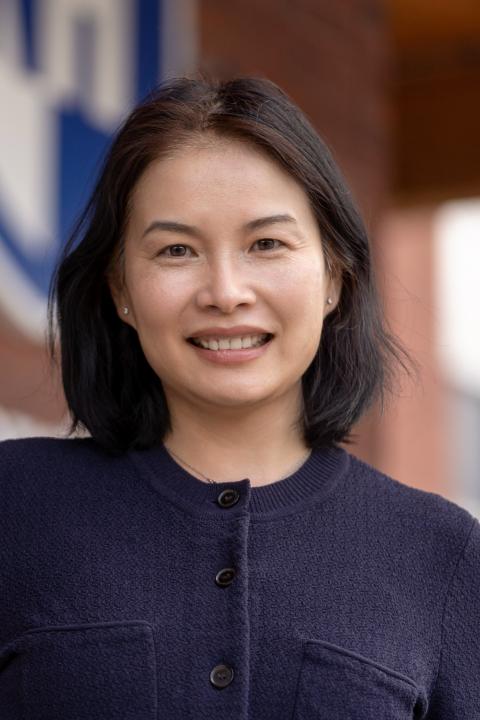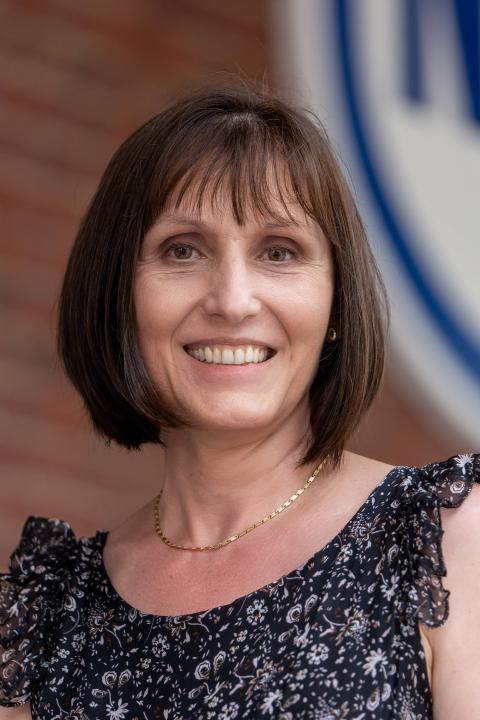Shaping computing professionals through innovation and hands-on experience
Given the demand for graduates who have a solid base in theory, strong conceptual knowledge and demonstrated competencies to develop cutting-edge computing systems, our computer science program is designed to give you the skills to succeed in this rapidly growing industry.
What is computer science?
Grounded in mathematics and computer engineering, computer science advances the science and theory of computation and develops computing-based systems that are the fabric of today's economy. Computer science is one of the fastest growing fields in the United States, with exciting job prospects that value highly creative, interdisciplinary and impactful work. This degree program is well suited for students who want to explore and understand how key concepts and principles of computer science are translated into real-world applications. Computer science students enjoy exceptional career opportunities in highly diverse settings, from Fortune 500 companies to audacious startups, and are highly qualified to pursue graduate study in various fields.
Why study computer science at UNH Manchester?
Through project-based learning in the classroom and relevant internships and research experiences, the computer science program at UNH Manchester prepares students with the skills to pursue careers or graduate school in this high-demand and rewarding field. Students learn computer science theories, build a strong technical foundation and apply computing concepts and practices through real-world experience with our vast network of local businesses and tech companies. With one-on-one faculty mentorship, cutting-edge lab facilities and face-to-face networking opportunities, computer science majors graduate with strong problem-solving, analytical and communication skills, a solid base in theory and demonstrated competencies to develop innovative computing systems.
Potential careers
- Applications architect
- Big data engineer
- Computer network architect
- Data security analyst
- Database developer
- Full stack developer
- Information security analyst
- Mobile application developer
- Software engineer
- Software systems engineer
The accelerated master's program is designed to give diligent students the ability to complete a B.S. in computer information systems and an M.S. in information technology in as little as five years. You're eligible to apply if you have a GPA of 3.2 or higher in your junior year or first semester of senior year. learn more
Curriculum & Requirements
The computer science program combines a solid foundation in computing necessary to succeed in today's start-up and high-tech environments. The program is designed in response to market demand for students proficient in computer science.
Students in the computer science program gain real-world experience through extensive project work and opportunities to interact with industry experts through internships and sponsored research.
Career prospects for students with an undergraduate computer science degree are varied, and may include such areas as applications developer, computer and information research scientist, data security specialist, database administrator, database developer, multimedia developer, network architect, product development manager, quality assurance analyst, software systems developer, user experience designer, or web developer.
Program Educational Objectives
Within five years of graduation, a CS student should be able to:
- Demonstrate mastery of the core areas of computer science
- Invent, develop, manage, and evaluate computing systems and services
- Exercise professional responsibility and have appreciation of the social, legal, ethical, and cultural issues inherent in the computing field.
For additional information contact the UNH Manchester Office of Admissions, (603) 641-4150.
Sample Course Sequence
| First Year | ||
|---|---|---|
| Fall | Credits | |
| COMP 424 | Applied Computing 1: Foundations of Programming | 4 |
| ENGL 401 | First-Year Writing | 4 |
| MATH 425 | Calculus I | 4 |
| UMST 401 | First Year Seminar | 2 |
| Discovery Course | 4 | |
| Credits | 18 | |
| Spring | ||
| COMP 415 | Mobile Computing First and For Most | 4 |
| COMP 430 | Systems Fundamentals | 4 |
| COMP 570 | Statistics in Computing and Engineering | 4 |
| PHYS 407 | General Physics I | 4 |
| Credits | 16 | |
| Second Year | ||
| Fall | ||
| COMP 500 | Discrete Structures | 4 |
| COMP 525 | Data Structures Fundamentals | 4 |
| Discovery Course | 4 | |
| Foreign Language | 4 | |
| Credits | 16 | |
| Spring | ||
| COMP 530 | Machine and Network Architecture | 4 |
| COMP 560 | Ethics and the Law in the Digital Age | 4 |
| MATH 645 | Linear Algebra for Applications | 4 |
| Discovery Course | 4 | |
| Credits | 16 | |
| Third Year | ||
| Fall | ||
| COMP 625 | Data Structures and Algorithms | 4 |
| UMST 582 | Internship and Career Planning Seminar | 1 |
| Discovery Course | 4 | |
| Elective Course | 4 | |
| Elective Course | 4 | |
| Credits | 17 | |
| Spring | ||
| COMP 630 | Systems Software | 4 |
| COMP 690 | Internship Experience | 4 |
| Discovery Course | 4 | |
| Elective Course | 4 | |
| Credits | 16 | |
| Fourth Year | ||
| Fall | ||
| COMP Topic Course | 4 | |
| COMP Topic Course | 4 | |
| Elective Course | 4 | |
| Elective Course | 4 | |
| Credits | 16 | |
| Spring | ||
| COMP 790 | Capstone Project | 4 |
| Elective Course | 4 | |
| Elective Course | 4 | |
| Elective Course | 4 | |
| Credits | 16 | |
| Total Credits | 131 | |
Degree Requirements
All Major, Option and Elective Requirements as indicated.
*Major GPA requirements as indicated.
Major Requirements
Students majoring in computer science must complete 128 credits to graduate, satisfy the University's Discovery Program, and complete 69 credits in the major with a minimum of C- in each course. Students must maintain an overall cumulative GPA of 2.0 or better.
Transfer students who elect to major in computer science must earn 69 approved credits for completion of the major, of which at least 24 credits must be completed at UNH Manchester.
| Code | Title | Credits |
|---|---|---|
| Mathematics and Science 1 | ||
| COMP 500 | Discrete Structures | 4 |
| COMP 570 | Statistics in Computing and Engineering | 4 |
| MATH 425 | Calculus I | 4 |
| MATH 645 | Linear Algebra for Applications | 4 |
| PHYS 407 | General Physics I | 4 |
| Computing Core | ||
| COMP 415 | Mobile Computing First and For Most | 4 |
| COMP 424 | Applied Computing 1: Foundations of Programming | 4 |
| COMP 430 | Systems Fundamentals | 4 |
| COMP 525 | Data Structures Fundamentals | 4 |
| COMP 530 | Machine and Network Architecture | 4 |
| COMP 560 | Ethics and the Law in the Digital Age | 4 |
| COMP 625 | Data Structures and Algorithms | 4 |
| COMP 630 | Systems Software | 4 |
| Project and Professional Practice 2 | ||
| COMP 690 | Internship Experience | 4 |
| COMP 790 | Capstone Project | 4 |
| or COMP 791 | ||
| UMST 582 | Internship and Career Planning Seminar | 1 |
| Computing Topics 3 | 8 | |
| Select two from the following: | ||
COMP 705 | Full Stack Development | |
COMP 720 | Database Systems and Technologies | |
COMP 725 | Programming Languages | |
COMP 740 | Machine Learning Applications and Tools | |
COMP 785 | Applied Cryptography | |
| Total Credits | 69 | |
- 1
The program requires four mathematics courses and one physics course.
- 2
The program prepares students for the workforce and further education in a holistic way by emphasizing communication, collaboration, team work, initiative, appreciation for diversity, and self-direction and responsibility.
- 3
Advisor permission required.
Program Learning Outcomes
- Analyze a complex computing problem and apply principles of computing and other relevant disciplines to identify solutions.
- Design, implement, and evaluate a computing-based solution to meet a given set of computing requirements in the context of the program’s discipline.
- Communicate effectively in a variety of professional contexts.
- Recognize professional responsibilities and make informed judgments in computing practice based on legal and ethical principles.
- Function effectively as a member or leader of a team engaged in activities appropriate to the program’s discipline.
- Apply computer science theory and software development fundamentals to produce computing-based solutions.
The student learning outcomes are aligned with criteria for accrediting computer science programs as recommended by the ABET Computing Accreditation Commission and the ACM Computing Curricula – CS 2013 Computer Science guidelines.
Explore Program Details
-
Associate Professor/Affiliate Associate ProfessorEmail: Michael.Jonas@unh.eduPhone: (603) 641-4352
-
Adjunct Faculty
As a computing major, you’ll have access to state-of-the-art lab facilities equipped with the latest hardware equipment and software development tools.
Two large labs set up with peer programming and shared learning in mind, stocked with:
- Dell Latitude E6420 and Dell Latitude E4500 computers with dual-booting configuration to run Windows 7 and Fedora 17
- Additional external monitors and tools to improve collaboration on team projects
- 60 dedicated Ethernet data ports to allow for network design experiments
- Wireless access
A spacious server room equipped with:
- Dell PowerEdge server computers, Ethernet data ports, and networking gear to provide instructional support for the Computing Technology courses
- A stack of Dell PowerEdge server computers running a Linux server operating system to run experiments in the Capstone Project course
- Monitoring consoles to optimize system and network administrative operations
Two server clusters:
- Speech Server Cluster consisting of a stack of Dell PowerEdge servers running Red Hat Linux server operating system to run Speech experiments in the Capstone Project course
- GPU Computing Cluster is under construction, made possible with a recent grant from NVIDIA, the world leader in visual computing. The state-of-the-art cluster will allow students to analyze medical imagery, explore models of speech and leverage GPU computing and CUDA C/C++ in their courses.
Our lab laptops are powerful development platforms configured to run a large variety of tools and utilities
- A private cloud of virtual machines running Windows and Linux server operating systems, managed with VMware vSphere, is updated each semester to meet course instruction and student project needs.
- Server applications and run-time environments (BinNami and XAMPP) are configured to provide MediaWiki, Apache web, and MySQL database services
- Shared network drives and staging server virtual machines support student project activities
- A Balsamiq academic license offers mockup building tools to design user experiences for course projects
- A Microsoft Developer Network Academic Alliance (MSDN AA) membership gives students access to Microsoft developer and designer tools software
Technology is advancing daily, and the need for tech-savvy graduates is growing alongside it.
The Bureau of Labor Statistics anticipates positive growth in many computing professions, projecting one million more computing jobs than students in 2020. In its spring 2016 Salary Survey, the National Association of Colleges and Employers (NACE) shows computer science majors earn the top average starting salary among computer and information sciences graduates at the bachelor’s degree level.
Combined with growing market demand, the business and tech chops you’ll develop at UNH Manchester translate to an impactful and lucrative career. Your computer science degree will give you the practical technical skills for an impactful, lucrative career in industries from science to education to healthcare and beyond.
| Job Title | Job Growth | Average Salary |
| Computer and Information Systems Manager | 15% | $131,600 |
| Computer Network Architect | 9% | $100,240 |
| Computer Science Teacher, Postsecondary | 13% | $72,470 |
| Computer Systems Analyst | 21% | $85,800 |
| Database Administrator | 11% | $81,710 |
| Information Security Analyst | 18% | $90,120 |
| Software Developer | 17% | $100,690 |
Our campus is in the heart of the region’s cultural, economic, entertainment and government activity — putting unlimited internship opportunities at your doorstep. We’ve partnered with local businesses to give you the real-world experience that sets you apart. Computing majors have interned at many high-profile organizations in the area, including:
- Oracle
- Dyn
- BAE Systems
- SilverTech
- 2KR Systems
Computing drives innovation in all industries, so adding a computer information systems minor to your degree builds both your resume and the foundation for highly desirable technical skills.
We've partnered with NHTI to develop a pathway that shows you how your community college courses will transfer into UNH Manchester's computer science program.
The Computing Technology Industry Advisory Board (CT-IAB) advises and supports the computing technology program in its effort to meet the economic development needs in New Hampshire and the region, and to educate computing majors at UNH Manchester in three degree programs: computer information systems, B.S.; computer science, B.A.; and information technology, M.S.
The CT-IAB provides counsel and support in
- Curriculum design and authentic project experiences
- Lab infrastructure and services
- Partnerships with business, industry, government, educational and nonprofit organizations
- Developing educational pathways to computing education and careers for all, in particular for underrepresented students
- The board includes computing professionals, researchers and leaders who represent local industry, business, government, education and nonprofit organizations.
- Barbara Bancoft, Professor and Computer Networking Program Coordinator, Nashua Community College
- Gunjan Choudhary, Scrum Master/Software Development Manager, Autodesk; Adjunct Faculty, UNH Manchester
- Dan Couture, Senior Data Integration Engineering, Fitbit
- Eric Esposito, Founder and Principal Architect, Software/Director of Technology, SilverTech, Inc.
- Ken Gitlitz, Professor of Computer Engineering Technology, NHTI
- Richard Greene, MITRE Corp, Lead Staff
- John Grossmith, Lead Solution Engineer, Salesforce
- Scott Innes, Software Engineer, Fidelity Investments
- Peter LaMonica, MCC IT Department Chair, Manchester Community College
- Tommy McCarthy, Principal Software Engineer, Autodesk
- Ed Nelson, Production Software Engineer, Worldplay; Adjunct Faculty, UNH Manchester
- Suzanne Poirier, Chief Technology Office, Clearsurance
- Vance Poteat, Professor of Engineering and Computing Sciences Dept. Chair, Nashua Community College
- Brice Rader, Principal Software Engineer, Liberty Mutual
- Bethany Ross Abbot, Technical Operations Manager, NS1
- Andy Schwab, Assistant Professor, IT Program, NHTI
- Jason Syversen, CEO & Computer Security Entrepreneur, Siege Technologies, LLC
- Rola Tokatli, Senior Business Intelligence Data Analyst, Merrimack Valley Accountable Care Organization
- Matt Vartanian, Software Engineer, Raytheon
